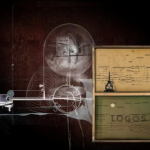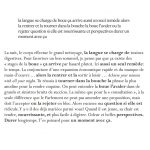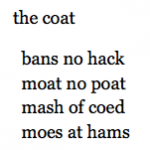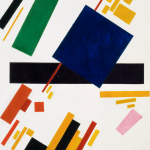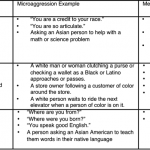2015
A serious (and playful) consideration of the power of “things,” Christopher Leise reviews Jane Bennett’s Vibrant Matter: A Political Ecology of Things through the lens of the Lego Movie. The implied dynamism of the manipulable modularity of the Lego world provides strong resonances with Bennett’s take on “thing-power” and distributed agency, while the crisis in the plot of the Lego Movie offers an apt illustration of the dangers of human exceptionalism discussed in Bennett’s text.
Bridging Superfund sites and video games, Alenda Chang’s essay revisits media- and computation-centered definitions of remediation to extend media and mediation past the pale of digital visual technology. Through a parallel consideration of what’s known as environmental remediation—cleaning up or cordoning off polluted sites, using technological or biotechnological methods—Chang argues that human and nonhuman bodies and ecosystems are equally enmeshed in practices of communication and transformation.
*This essay was selected by Cary Wolfe for his print Gathering in the first volume of Post-Digital: dialogues and debates from electronic book review (Bloomsbury 2020).
Joyce’s treatment of baseball in Going the Distance isn’t merely thematic, according to Punday, who believes that baseball (and its emphasis on numerical ordering) here represents the balance of the poetic and computational that defines Joyce’s electronic literature.
Steve Tomasula discusses the development and context of his work (and TOC in particular), including relations to print and electronic literature, in this interview with Kiki Benzon.
By working through the resemblances between Tomasula's Vas: An Opera in Flatland (2004) and Edward Abbott's much earlier Flatland (1884), Pham-Thanh establishes how Tomasula "orchestrates the downfall of the traditional hegemonic masculinity" that defined Abbott's time.
Ciccoricco acknowledges that Michael Joyce's new novel (Foucault, in Winter, in the Linnaeus Garden), which gives a fictionalized account of Foucualt's relationship to Jean Barraque, opens Joyce up to a broader range of criticisms, though Ciccoricco also argues that by focusing on a "productive and troubled time for Foucault," Joyce ultimately offers a "compelling meditation on what we might call the nexus of madness, philosophy, and literature."
Stefan Herbrechter replies to John Bruni’s review essay, “Where do we find ourselves?” Building upon a dialogue that has developed across several manuscripts, Herbrechter pushes the discussion of critical posthumanism towards its radical implications. Not merely a new wave of theoretical fashion, Herbrechter identifies the posthuman as an intellectually necessary reframing of criticism altogether.
In this essay, Laura Shackelford reviews Jeffrey T. Nealon’s “Post-Postmodernism.” Not merely an historical supplement to Fredric Jameson’s “Postmodernism,” but an attempt to devise a new critical method appropriate to our “just-in-time” present, Shacklford discusses its implications for literary practice in the 21st Century.
In this riposte to Herbrechter, John Bruni suggests that the pivot from humanism to posthumanism is not without peril. Thus, Bruni enjoins readers, even as the posthuman discourse incorporates them into its post-anthropocentric milieu, to “watch the critters” as the machine of capitalism trudges ever onward.
In this essay, John Cayley builds upon a critical legacy that reflects intensively on the process of literature in an age of machine language. Building on a legacy that includes ebr classics like “The Code is not the Text” and many points in between, “Beginning with ‘The Image’” points to the difficulties of translating a procedural code-based text that “finds” its substance in the repository of text known as the World Wide Web.
In this essay John Cayley reviews Nick Montfort’s #!, a book of computer generated poetry and the code that generated it. Exploring the triangle of Montfort’s programs, the machines that read them, and the output presented for human readers, Cayley situates the experience of reading and writing as intrinsically virtual, powered by its sustained potentiality, rather than its definitive comprehension.
In his review of Stefan Herbrechter’s Posthumanism: A Critical Analysis, John Bruni addresses the technoscientific and philosophical varieties of posthumanism, and considers the necessity of moving beyond the “dehumanizing” effects of technocentric theories of cultural evolution. This critical project seeks to preserve freedom and agency, rejecting a concept of posthumanism as a side-effect of innovation in favor of one that sees change itself arising from social processes.
Salter's "Convergent Devices, Dissonant Genres" assesses the implications of the iPad for the state of literature. Looking at "traditional" approaches that re-mediate print for digital devices, "enhanced" approaches which add "special features" to extant texts and forms, pre-tablet eliterature re-experienced in the new environment, and finally the creation of original apps with literary qualities, Salter's work is a critical document of the impact a single interface can have on the development of literary culture in the 21st Century.
2014
E-lit authors Stephanie Strickland and Marjorie Luesebrink organized a panel on the "Future of E--Lit" at the ELO 2012 conference, allowing emerging and early career authors to articulate institutional and economic, as well more familiar technological, developments that constrain and facilitate current practice. The panel papers were released in ebr in March 2014. Luesebrink and Strickland followed up with comments on the papers, offering a "progress report" on the future of the field. The individual responses are available as glosses on the essays and in full here.
The authors discuss their effort to raise critical awareness about microaggressive racist behavior with Mimesis, an interactive game set in an underwater environment where players become sea creatures, and where they feel the social force of microaggression regardless of the their race or ethnicity.
At the Frankfurt Book Fair, Ed Finn and his team attempted to "write, edit, and publish a book in three days." In this essay, Finn explains the process, outcomes, and future considerations of that collaborative experiment in writing, reading, and publishing in parallel and as performance, in the same room at the same time, as he attempts to answer the question, "What is the future of publishing?"
Vanwesenbeeck situates Mark Taylor’s recent Rewiring the Real, within a growing body of critical literature (which also includes John McClure’s Partial Faiths and Amy Hungerford’s Postmodern Belief) that regards religion as key to a robust account of postmodern culture—and for Taylor, in particular, as key to appreciating the novels of William Gaddis, Richard Powers, Mark Danielewski, and Don DeLillo
In one half of a pair of critical reviews looking at recent titles in animal studies, Karl Steel examines Nicole Shukin's Animal Capital (Shukin reviews Steel in the other half). In particular, Steel looks at Shukin's biopolitical framework, and considers how that framework challenges not only our conception of what constitutes the animal, but also--and more to the bone--our conception of the capacity of fields like animal studies.
In one half of a pair of critical reviews looking at recent titles in animal studies, Nicole Shukin examines Karl Steel's How to Make a Human (Steel reviews Shukin in the other half). In particular, Shukin discusses Steel's framing of "the human" in terms of medieval violence, and she considers what that framing can offer to today's political and ethical conversations.
Crossing the tools of fluid dynamics with those of literary criticism, Gwen Le Cor casts a new light on contemporary writing in new media. Unlike first generation, "classical" hypertexts that were non-linear in the sense of using linked textual elements, Le Cor sees Strickland and Lawson Jaramillo's poem, slippingglimpse, as a more "contemporary" instance of nonlinear writing that can be viewed (literally) as a "complex, nonlinear turbulent system."

